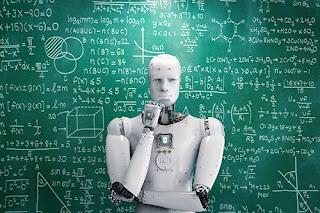Unleashing the Potential: AI and the Exciting Future of Education
Welcome to the future of education, where innovation and technology are transforming traditional learning methods. One of the most promising developments is the integration of Artificial Intelligence (AI) into educational systems. AI has the potential to revolutionize the way we teach and learn, offering personalized experiences, enhancing accessibility, and promoting lifelong learning. In this article, we will explore the exciting possibilities AI brings to education and how it can shape the future of learning.
Personalized Learning for Every Student
Imagine a classroom where every student receives personalized attention, tailored to their unique learning style and pace. With AI, this vision can become a reality. Intelligent algorithms can analyze vast amounts of data, including student performance, preferences, and individual strengths and weaknesses. By leveraging this information, AI can create customized learning pathways, providing targeted support and guidance for each student.
Adaptive Learning Platforms
Adaptive learning platforms powered by AI algorithms can track student progress in real-time, adjusting the curriculum to match their individual needs. These platforms can identify knowledge gaps and offer additional resources or alternative explanations to help students grasp challenging concepts. Through continuous assessment and feedback, AI algorithms ensure that students receive the right level of difficulty, ensuring their engagement and growth.
Virtual Tutors and Assistants
AI-powered virtual tutors and assistants are another exciting development in the future of education. These digital companions can provide immediate support to students, answering questions, offering explanations, and guiding them through complex problems. Students no longer have to wait for a teacher's attention or worry about feeling embarrassed when seeking help. AI tutors are available 24/7, patiently assisting learners on their educational journey.
Enhancing Accessibility
Education should be accessible to all, regardless of geographical location, physical abilities, or learning disabilities. AI has the potential to bridge these gaps and provide equal opportunities for everyone.
Global Reach through Online Education
Online education has already gained significant popularity, but AI can take it to new heights. With AI-powered platforms, students can access high-quality education from anywhere in the world. Interactive video lessons, virtual classrooms, and collaborative tools enable remote learning experiences that rival traditional in-person education. This global reach breaks down barriers and connects learners from diverse backgrounds, fostering cross-cultural understanding and knowledge exchange.
Assistive Technologies for Special Needs
AI can greatly assist learners with special needs. For example, speech recognition technology combined with natural language processing allows students with speech impairments to communicate with their AI assistants effectively. Additionally, AI can generate real-time closed captions or translations, ensuring that deaf or non-native speakers can fully engage with educational content. These assistive technologies create an inclusive learning environment that celebrates diversity.
Lifelong Learning and Skill Development
In the rapidly evolving job market, lifelong learning has become essential. AI-powered educational systems can support individuals in developing new skills and staying relevant in their fields.
Smart Career Guidance
Choosing a career path can be daunting, especially when faced with numerous options. AI career guidance tools can analyze a person's interests, strengths, and the current job market to provide personalized recommendations. By matching individuals with suitable career options, AI empowers learners to make informed decisions about their professional futures.
Continuous Learning and Microcredentials
AI-powered learning platforms offer bite-sized, self-paced courses that allow learners to acquire new skills incrementally. These microcredentials acknowledge specific competencies, making it easier for individuals to showcase their abilities to employers. Continuous learning through AI enables professionals to stay adaptable and thrive in an ever-changing work landscape.
Conclusion
The future of education is here, and AI is at the forefront of this transformation. Personalized learning, adaptive platforms, virtual tutors, and enhanced accessibility are just some of the ways AI is revolutionizing education. With the power of AI, we can create inclusive, engaging, and interactive learning environments that cater to the needs of every learner. The possibilities are endless, and the potential for growth and development is tremendous.
As we move forward into this exciting era of AI-driven education, we invite you to share your thoughts and feelings on this topic. How do you envision the future of education with AI? Are there any concerns or questions you have regarding this transformative approach? We would love to hear from you in the comments section below.
Labels: Education, Interesting, Technology


0 Comments:
Post a Comment
Subscribe to Post Comments [Atom]
<< Home